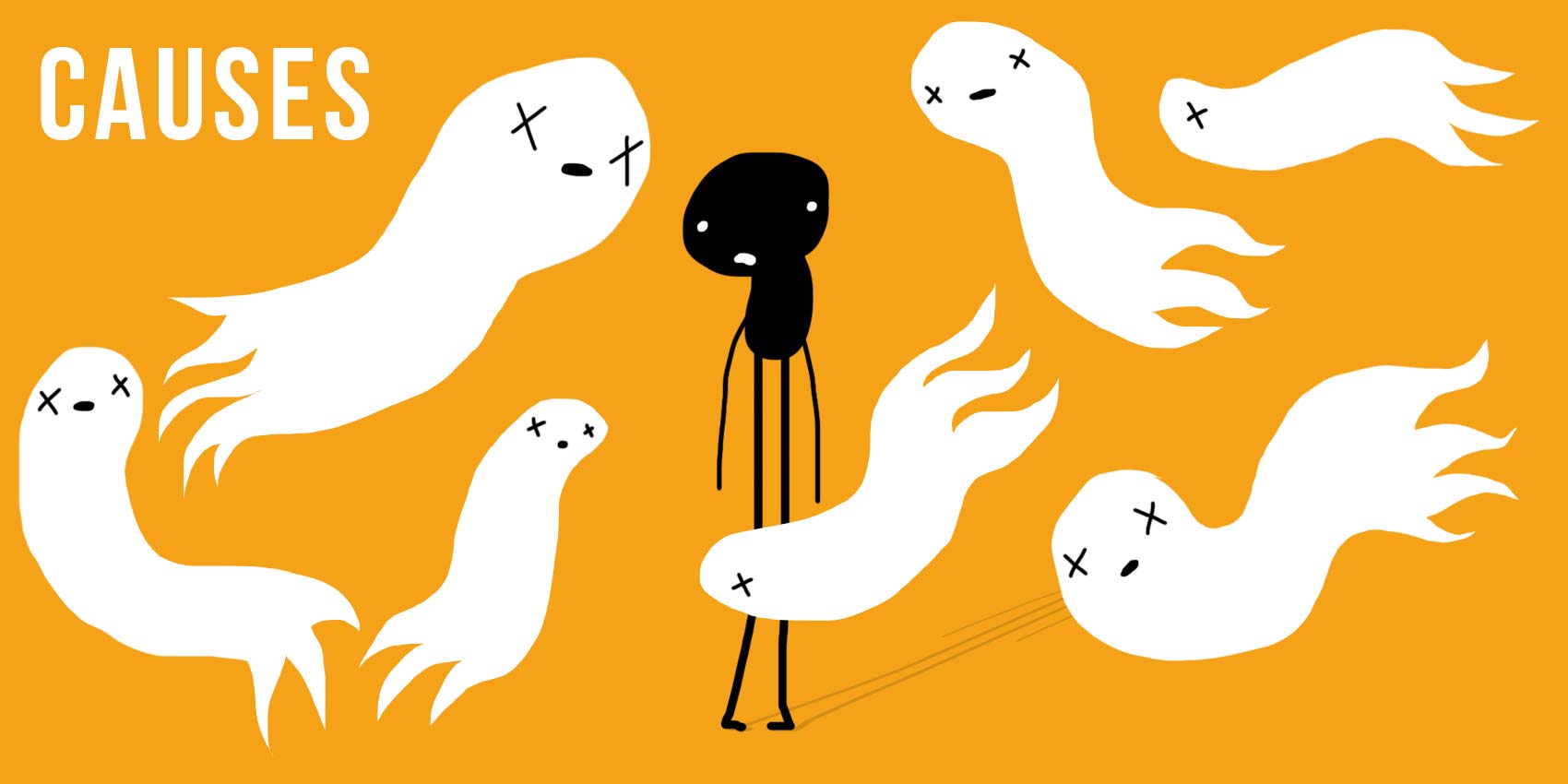30 Nov Causes

Clinical depression is a complex condition that can stem from one or multiple causes: According to webmd.com, the following are possible causal factors for depression:
• Abuse. Current or past physical, sexual, or emotional abuse.
• Certain medications. A side effect of some medications can be depression.
• Conflict. Especially with family and friends.
• Death or a loss. Although somewhat natural, losing someone close to you can spiral you into depression.
• Genetics. A family history of depression may increase the risk. The exact way this happens, though, is not known.
• Major events. Large changes in life, even when viewed as positive (such as the birth of a sibling or moving) can trigger depression.
• Other personal problems. Bullying, cyber-bullying, isolation, mental illness, too much schoolwork: these are all things that can contribute to depression.
• Serious illnesses. Being ill can often cause depression.
• Substance abuse. “Nearly 30% of people with substance abuse problems also have major or clinical depression.” (webmd.com)
• Environmental factors. Exposure to a chaotic living environment or being raised by caregivers who lack coping skills themselves can contribute to depression. Being exposed to toxins in utero is linked to depression as well.

The National Institute of Mental Health reports, “Depression is caused by a combination of genetic, biological, environmental, and psychological factors.”
Overall, the causes for clinical depression are large and diverse – it’s almost a wonder that we are not all feeling depressed after reading all that! However, a solid sense of self can buffer (protect) you from these causes and keep you strong (see Bonus YSS: How Is The Self Involved?)
One major area of focus recently in determining the cause of clinical depression is in neuroscience. Most theories about the causes of depression point to neurotransmitters in the brain being out of balance. To this point, a recent study done at UCLA found a biochemical imbalance.
Simply put, neurons in the brain are not firing properly, or firing too much. Networks in the brain are therefore not able to communicate efficiently. Your brain needs to be able to communicate well between its various systems in order to regulate mood, to learn, and to think critically. The clinically depressed brain can make the connections but has trouble turning off the connections when needed, so mood is not regulated as well as it would otherwise be. (You can read more about this here: http://psychcentral.com/news/2012/02/29/overactive-neural-connections-linked-to-depression/35395.html)
Also of note, people who have family members with clinical depression are at higher risk of becoming clinically depressed as well. However, how much depression (clinical and also just the tendency to be sad) is genetically caused and how much is environmental or learned (i.e. your mother didn’t learn the skills to handle emotions, so you never learned the skills either) is hard to assess. Likely, people can have genetic tendencies to be depressed and environmental factors and life events can cause that tendency to be expressed or not.




WLKHS1302
Posted at 12:56h, 11 OctoberYou can control the people you be around and who is a good influence on you. Try and have good relationships with other people.
WLKHS2219
Posted at 15:33h, 08 MarchRisk factors that you can control that are listed are that if you have conflict with someone that is triggering you, you can talk to them about it. Also if medication is causing you to be feel different and bad about yourself you can talk to your doctor.